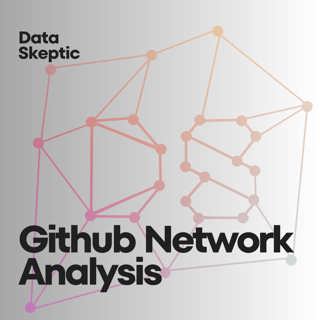![[MINI] Value of Information](https://cdn.podme.com/podcast-images/99E5B4C49CC9487AB4880B5C8DF050F0_small.jpg)
[MINI] Value of Information
A discussion about getting ready in the morning, negotiating a used car purchase, and selecting the best AirBnB place to stay at help frame a conversation about the decision theoretic principal known as the Value of Information equation.
19 Sep 201414min

Game Science Dice with Louis Zocchi
In this bonus episode, guest Louis Zocchi discusses his background in the gaming industry, specifically, how he became a manufacturer of dice designed to produce statistically uniform outcomes. During the show Louis mentioned a two part video listeners might enjoy: part 1 and part 2 can both be found on youtube. Kyle mentioned a robot capable of unnoticably cheating at Rock Paper Scissors / Ro Sham Bo. More details can be found here. Louis mentioned dice collector Kevin Cook whose website is DiceCollector.com While we're on the subject of table top role playing games, Kyle recommends these two related podcasts listeners might enjoy: The Conspiracy Skeptic podcast (on which host Kyle was recently a guest) had a great episode "Dungeons and Dragons - The Devil's Game?" which explores claims of D&Ds alleged ties to skepticism. Also, Kyle swears there's a great Monster Talk episode discussing claims of a satanic connection to Dungeons and Dragons, but despite mild efforts to locate it, he came up empty. Regardless, listeners of the Data Skeptic Podcast are encouraged to explore the back catalog to try and find the aforementioned episode of this great podcast. Last but not least, as mentioned in the outro, awesomedice.com did some great independent empirical testing that confirms Game Science dice are much closer to the desired uniform distribution over possible outcomes when compared to one leading manufacturer.
17 Sep 201447min

Data Science at ZestFinance with Marick Sinay
Marick Sinay from ZestFianance is our guest this weel. This episode explores how data science techniques are applied in the financial world, specifically in assessing credit worthiness.
12 Sep 201431min
![[MINI] Decision Tree Learning](https://cdn.podme.com/podcast-images/7C9286289EC42849AE09F7655FA1E163_small.jpg)
[MINI] Decision Tree Learning
Linhda and Kyle talk about Decision Tree Learning in this miniepisode. Decision Tree Learning is the algorithmic process of trying to generate an optimal decision tree to properly classify or forecast some future unlabeled element based by following each step in the tree.
5 Sep 201413min

Jackson Pollock Authentication Analysis with Kate Jones-Smith
Our guest this week is Hamilton physics professor Kate Jones-Smith who joins us to discuss the evidence for the claim that drip paintings of Jackson Pollock contain fractal patterns. This hypothesis originates in a paper by Taylor, Micolich, and Jonas titled Fractal analysis of Pollock's drip paintings which appeared in Nature. Kate and co-author Harsh Mathur wrote a paper titled Revisiting Pollock's Drip Paintings which also appeared in Nature. A full text PDF can be found here, but lacks the helpful figures which can be found here, although two images are blurred behind a paywall. Their paper was covered in the New York Times as well as in USA Today (albeit with with a much more delightful headline: Never mind the Pollock's [sic]). While discussing the intersection of science and art, the conversation also touched briefly on a few other intersting topics. For example, Penrose Tiles appearing in islamic art (pre-dating Roger Penrose's investigation of the interesting properties of these tiling processes), Quasicrystal designs in art, Automated brushstroke analysis of the works of Vincent van Gogh, and attempts to authenticate a possible work of Leonardo Da Vinci of uncertain provenance. Last but not least, the conversation touches on the particularly compellingHockney-Falco Thesis which is also covered in David Hockney's book Secret Knowledge. For those interested in reading some of Kate's other publications, many Katherine Jones-Smith articles can be found at the given link, all of which have downloadable PDFs.
29 Aug 201449min
![[MINI] Noise!!](https://cdn.podme.com/podcast-images/593F301A1CA7219F7850BE48BFF24F04_small.jpg)
[MINI] Noise!!
Our topic for this week is "noise" as in signal vs. noise. This is not a signal processing discussions, but rather a brief introduction to how the work noise is used to describe how much information in a dataset is useless (as opposed to useful). Also, Kyle announces having recently had the pleasure of appearing as a guest on The Conspiracy Skeptic Podcast to discussion The Bible Code. Please check out this other fine program for this and it's many other great episodes.
22 Aug 201416min

Guerilla Skepticism on Wikipedia with Susan Gerbic
Our guest this week is Susan Gerbic. Susan is a skeptical activist involved in many activities, the one we focus on most in this episode is Guerrilla Skepticism on Wikipedia, an organization working to improve the content and citations of Wikipedia. During the episode, Kyle recommended Susan's talk a The Amazing Meeting 9 which can be found here. Some noteworthy topics mentioned during the podcast were Neil deGrasse Tyson's endorsement of the Penny for NASA project. As well as the Web of Trust and Rebutr browser plug ins, as well as how following the Skeptic Action project on Twitter provides recommendations of sites to visit and rate as you see fit via these tools. For her benevolent reference, Susan suggested The Odds Must Be Crazy, a fun website that explores the statistical likelihoods of seemingly unlikely situations. For all else, Susan and her various activities can be found via SusanGerbic.com.
15 Aug 20141h 9min
![[MINI] Ant Colony Optimization](https://cdn.podme.com/podcast-images/99E5B4C49CC9487AB4880B5C8DF050F0_small.jpg)
[MINI] Ant Colony Optimization
In this week's mini episode, Linhda and Kyle discuss Ant Colony Optimization - a numerical / stochastic optimization technique which models its search after the process ants employ in using random walks to find a goal (food) and then leaving a pheremone trail in their walk back to the nest. We even find some way of relating the city of San Francisco and running a restaurant into the discussion.
8 Aug 201415min





















